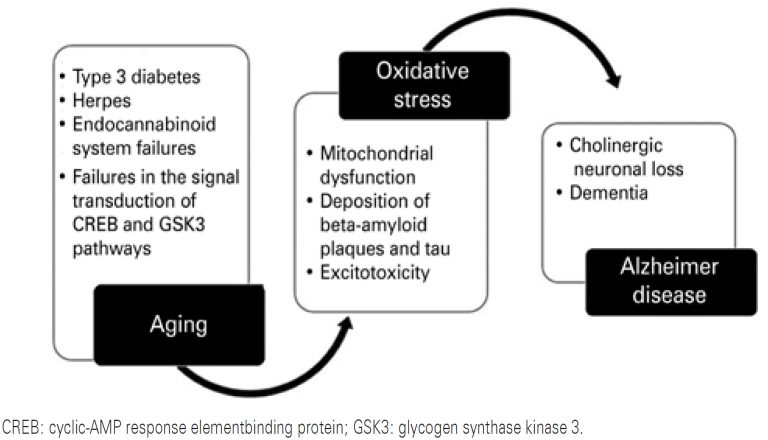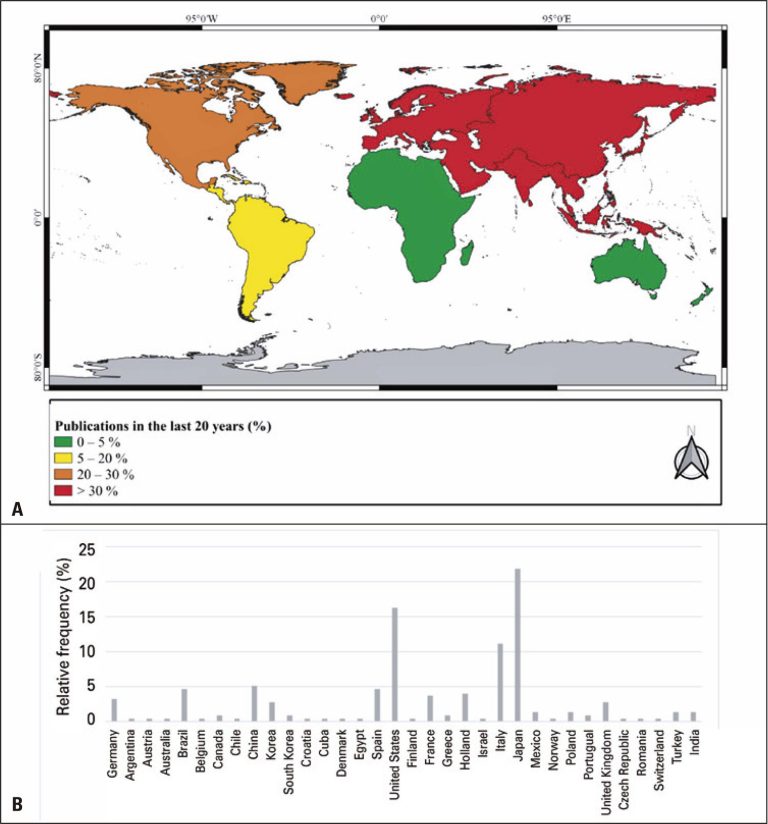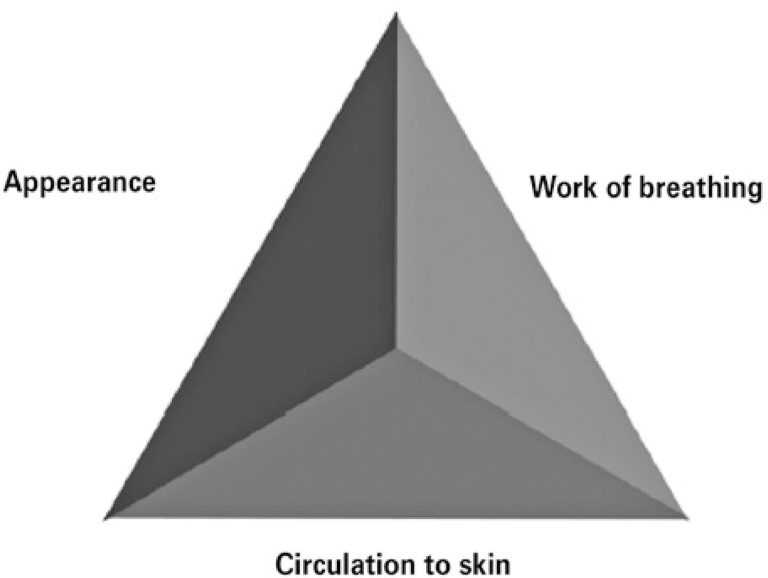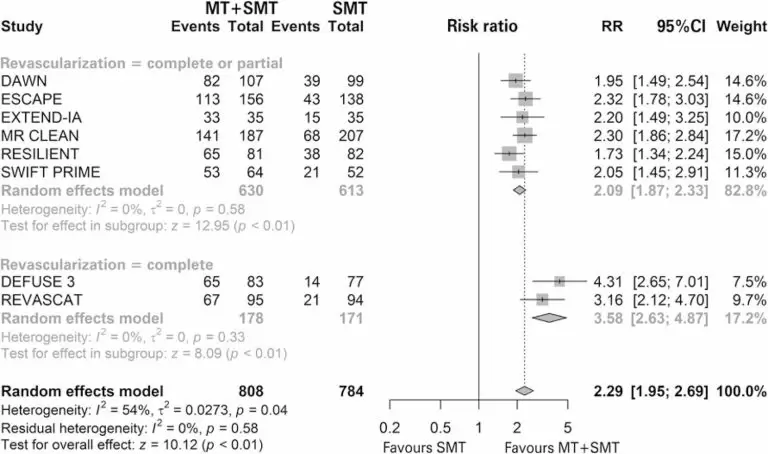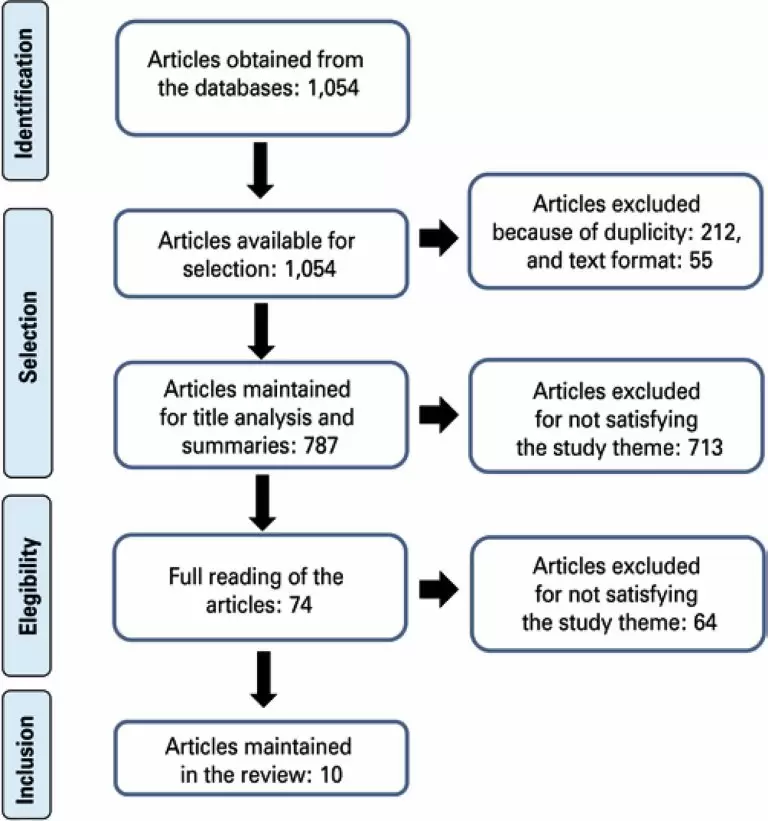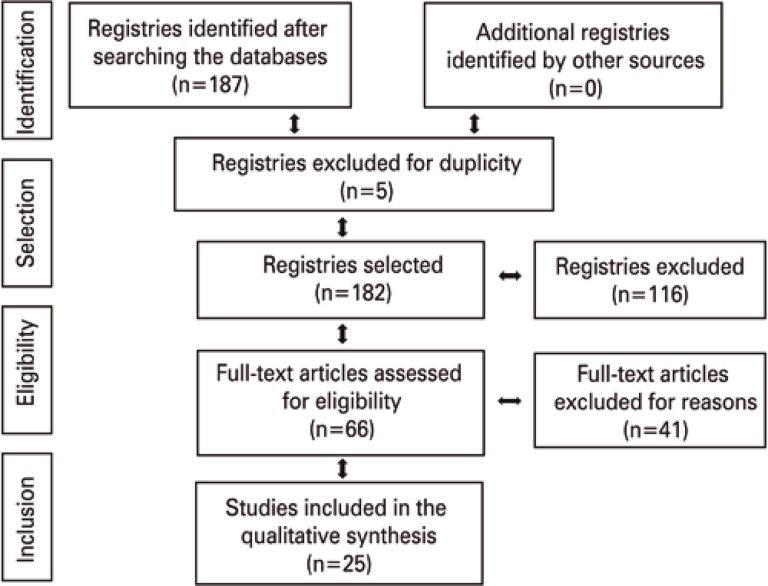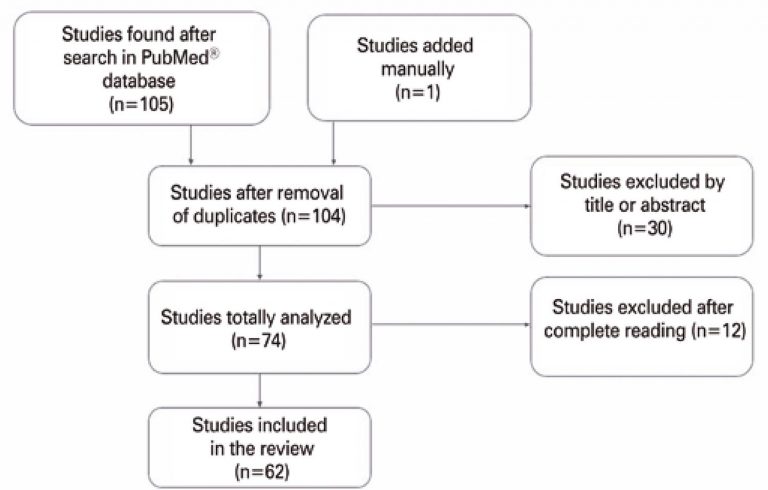21/Nov/2022
Antibiotic prophylaxis in pregnant with premature rupture of ovular membranes: systematic review and meta-analysis
einstein (São Paulo). 21/Nov/2022;20:eRW0015.
View Article21/Nov/2022
Antibiotic prophylaxis in pregnant with premature rupture of ovular membranes: systematic review and meta-analysis
DOI: 10.31744/einstein_journal/2022RW0015
ABSTRACT Objective To perform a systematic review and meta-analysis of randomized clinical trials that compared the use of antibiotics versus placebo in premature rupture of membranes preterm and evaluated maternal, fetal and neonatal outcomes in pregnant women with premature rupture of ovular membranes at a gestational age between 24 and 37 weeks. Methods A search was conducted using keywords in PubMed, Cochrane, Biblioteca Virtual em Saúde and Biblioteca Digital de Teses e Dissertações da USP between August 2018 and December […]
Keywords: Anti-bacterial agents; Antibiotic prophylaxis; Fetal membranes; Gestational age; Infant; Pregnant Women; Premature; premature rupture
09/Nov/2022
Hypothesis on ontogenesis and pathophysiology of Alzheimer’s disease
DOI: 10.31744/einstein_journal/2022RW0170
ABSTRACT Alzheimer’s disease is a neurodegenerative condition that causes changes in memory and cognition, in addition to behavioral disorders, and most commonly affects the elderly. Several studies in the literature have presented therapeutic measures in an attempt to interfere with the pathogenic mechanisms of the disease and to mitigate its clinical manifestations. Some factors, such as excitotoxicity, cholinergic dysfunctions, oxidative stress, tau protein hyperphosphorylation, changes in amyloid-beta peptide metabolism, herpes viruses, apolipoprotein E, glycogen synthase kinase 3, insulin resistance, and […]
Keywords: Alzheimer disease; Amyloid beta-peptides; Apolipoprotein E4; Cyclic AMP response element-binding protein; Diabetes mellitus type 3; Endocannabinoids; Glycogen synthase kinase 3; Insulin resistance; Oxidative stress; Tau proteins
13/Oct/2022
International trends in pulmonary neuroendocrine cancer studies:a scientometric study
DOI: 10.31744/einstein_journal/2022RW0113
ABSTRACT Introduction Pulmonary neuroendocrine tumors account for approximately 20% of all primary lung tumors. Few studies summarize the current body of pulmonary neuroendocrine tumors studies worldwide. Objective A quantitative scientometric analysis was conducted to evaluate the development of applications and innovations and to analyze their contribution to various areas of improvement in treatment and diagnosis of pulmonary neuroendocrine tumors. Methods We searched for studies published in the last 20 years in the databases United States National Library of Medicine (PubMed), […]
Keywords: Lung neoplasms; Neuroendocrine tumors; Scienciometry; Scientometric analysis
02/Aug/2022
Clinical management of fever in children in Brazil: practical recommendations from an expert panel
DOI: 10.31744/einstein_journal/2022RW6045
ABSTRACT The objective of this study was to answer several questions related to the assessment and treatment of fever, as well as other controversies that exist during its management in pediatric patients. First, an advisory board with medical experts was conducted to discuss the clinical journey of these patients, considering the main challenges and possible solutions. After this discussion, a non-systematic literature review was performed, between November 2019 and January 2020, to collect the most relevant evidence available in the […]
Keywords: Ambulatory care; Child; Fever; Health Knowledge, Attitudes, Practice
02/Aug/2022
Mechanical thrombectomy for acute ischemic stroke: systematic review and meta-analysis
DOI: 10.31744/einstein_journal/2022RW6642
ABSTRACT Objective To evaluate the safety and efficacy of mechanical thrombectomy associated with standard medical treatment compared with standard medical treatment only to treat patients with acute ischemic stroke. Methods This was a systematic review and metaanalysis of randomized controlled trials. An electronic search was performed in the following databases: MEDLINE ® /PubMed ® , Cochrane Library (Trials), LILACS/IBECS (via Biblioteca Virtual em Saúde (BVS)) and Embase. Complementary searches were also conducted. The selection of studies and data collection were […]
Keywords: Ischemic stroke; Mechanical thrombolysis; Systematic review; Thrombectomy; Thrombolytic therapy
21/Jul/2022
Communicating bad news in the practice of nursing: an integrative review
DOI: 10.31744/einstein_journal/2022RW6632
ABSTRACT Objective To analyze current scientific knowledge about communication of bad news by nurses. Methods This is an integrative literature review carried out by searching articles published in national and international journals indexed at SciELO, MEDLINE® (PubMed®), Scopus, Bireme and CINAHL, from 2010 to 2020, by crossing the controlled descriptors “communication”, “revelation of the truth”, and “nursing”, and the uncontrolled descriptor “bad news”. Results Ten articles with qualitative and cross-sectional design, as well as case reports were included. The analysis […]
Keywords: Attitude of health personnel; Education, nursing; Family; Health communication; Nurses; Truth disclosure
05/Jul/2022
Breastfeeding during the COVID-19 pandemic: what do we know so far?
DOI: 10.31744/einstein_journal/2022RW6609
ABSTRACT Objective This study aimed to conduct a literature review on safety in breastfeeding in mothers with COVID-19. An integrative review of national and international literature was carried out. Methods The search took place in the SciELO, LILACS and MEDLINE® databases. Results A total of 25 scientific articles that specifically addressed the theme of breastfeeding and its risk and protective factors for infection by SARS-CoV-2 were selected. According to the studies analyzed, although the presence of viral RNA had already […]
Keywords: Betacoronavirus; Breast feeding; Child health; Coronavirus infections; COVID-19; Infant, Newborn; Lactation; Milk, human; Protective factors; SARS-CoV-2
22/Mar/2022
Influence of statins in metastatic castration-resistant prostate cancer patients treated with new antiandrogen therapies: a systematic review and meta-analysis
einstein (São Paulo). 22/Mar/2022;20:eRW6339.
View Article22/Mar/2022
Influence of statins in metastatic castration-resistant prostate cancer patients treated with new antiandrogen therapies: a systematic review and meta-analysis
DOI: 10.31744/einstein_journal/2022RW6339
ABSTRACT Objective To evaluate whether the addition of statins to the new antiandrogens (enzalutamide or abiraterone) affects overall survival in patients with metastatic castration-resistant prostate cancer. Methods We searched studies in English language including the keywords statins, overall survival, and metastatic castration-resistant prostate cancer, at PubMed® (MEDLINE®), Embase and Cochrane databases. Results A total of 195 articles were initially identified, but only four met the inclusion criteria and were selected for the meta-analysis. A total of 955 patients, 632 on […]
Keywords: Androgen antagonists; Hydroxymethylglutaryl-CoA reductase inhibitors; Prostatic neoplasms, castration-resistant; Survival rate
22/Mar/2022
Brazilian Guidelines for Nutrition in Cystic Fibrosis
DOI: 10.31744/einstein_journal/2022RW5686
ABSTRACT Objective To develop a scientific consensus on nutrition in cystic fibrosis. Methods Sixteen coordinators elaborated relevant questions on nutritional therapy in cystic fibrosis, which were divided into six sections: nutritional assessment, nutritional recommendations, nutritional intervention, dietary counseling, special situations and enzyme replacement, and gastrointestinal manifestations. Two to three specialists in the field were responsible for each section and obtaining answers formulated based on standardized bibliographic searches. The available literature was searched in the PubMed®/MEDLINE database, after training and standardization […]
Keywords: Cystic fibrosis; Nutrition therapy; Nutritional assessment; Recommended dietary allowances
03/Feb/2022
Acute pancreatitis and COVID-19: a new target for infection?
DOI: 10.31744/einstein_journal/2022RW6667
ABSTRACT This review aimed to investigate whether SARS-CoV-2 is capable of infecting the gland and causing acute pancreatitis, and the peculiarities in the management of these cases. The research was conducted through PubMed® database, and 62 articles were systematically selected for analysis. Differences were found in the literature; however, there are important warnings, such as the presence of hyperlipasemia, clinical and imaging findings suggestive of acute pancreatitis in the presence and even in the absence of respiratory symptoms. Attention should […]
Keywords: Betacoronavirus; Coronavirus infections; COVID-19; Pancreatitis; SARS-CoV-2



